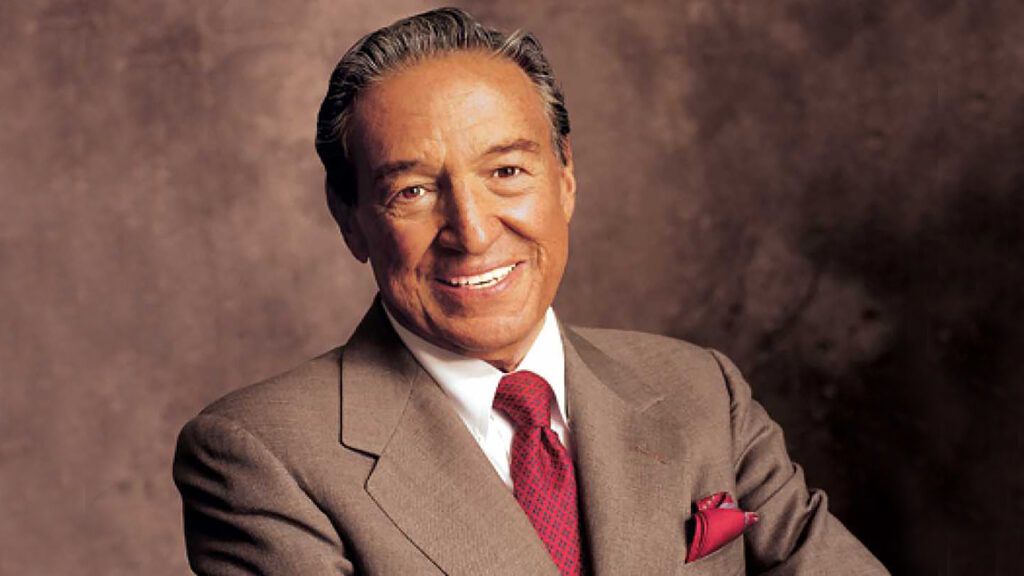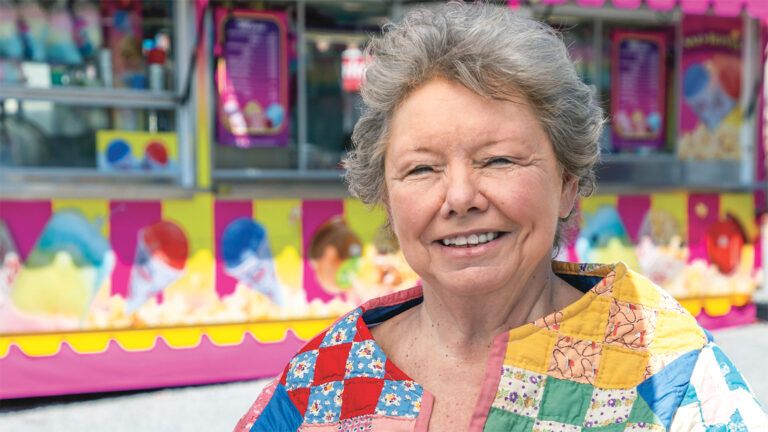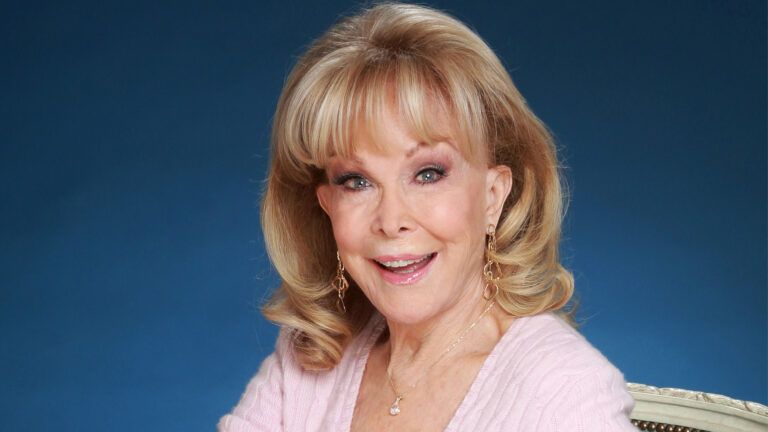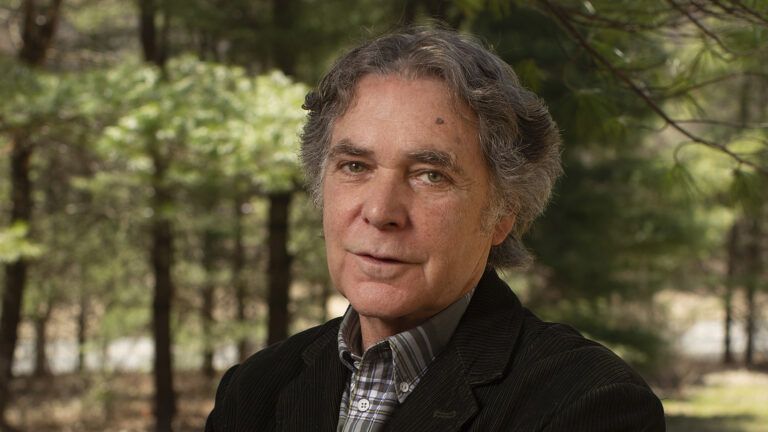Like most people, I’d had days when I felt blue and it took more of an effort than usual to get through the things I had to do.
But I always snapped out of it.
Before I knew it, I would be corralling another reluctant interview subject for 60 Minutes or trying to whip a crosscourt forehand past my opponent in a tennis match.
Relentless as ever, basically. (And a pain in the neck to my colleagues at CBS News, who claim that “Mike Wallace is here” are the four most dreaded words in the English language.)
So my down times invariably passed. Until the fall of 1984, that is, when I found myself suddenly struck, then overwhelmed, by something—an emptiness, a helplessness, an emotional and physical collapse—I’d never experienced before.
CBS News was embroiled in a high-profile lawsuit filed by General William Westmoreland over a documentary we had made about the Vietnam War, a special report for which I’d been the chief correspondent.
The case went to trial in early October. Every morning after Mary and I had breakfast, instead of heading to my office in the mid-Manhattan CBS News building on West 57th Street, I went downtown to the federal courthouse in Foley Square.
As I made my way into the courtroom, past the phalanx of reporters, I had a feeling their eyes on me were skeptical. A pretty jarring reversal of roles.
Still, that was nothing compared to having to listen to the other side’s lawyers call into question not only the accuracy of our documentary but also my own professional integrity.
You’d think I’d have just let the allegations roll off my back. After all, they weren’t true. Plus, as Mary reminded me, I had nearly 50 years in broadcasting to back up my good name.
But day after day, I sat trapped in room 318 at the courthouse, hearing people I didn’t even know attack the work I’d done. Given the way trials proceed, I didn’t have a chance to defend myself right then, so the accusations ate at me.
Doubts started to haunt me. Did I do something wrong? It was as if all my experience in radio and TV news didn’t count for anything anymore. What if I really am dishonest as a reporter? Dishonest as a person?
I tried to keep going on with life as usual. Whenever court was out of session, I worked on stories for 60 Minutes, doing research and interviews at night if necessary. But I had a hard time concentrating. Me, the guy who was famous for never giving up on a story, for asking such pointed questions, they made everyone from gangsters to movie stars to political leaders sweat.
In November I had a brief escape from the courtroom. I went to Ethiopia to cover the famine. The tragedy unfolding before my eyes in that drought-ravaged country, the human suffering I witnessed, resharpened my focus.
With something approaching my usual vigor, I did a segment for 60 Minutes. We edited it and got it on the air. Things are getting back to normal, I told myself.
But as soon as I returned to the daily grind of the trial, that strange, dark malaise set in again. If anything, it was more pervasive than before, casting a pall over every part of my life the way the chill gray of winter seemed to blanket all of New York City.
I didn’t have an appetite, no matter what Mary put on the table. I could barely summon up the energy to get out of bed each morning, let alone run after balls hit to the corners of the tennis court. But at night I would lie awake, restless.
Sometimes I’d give up on sleep and switch on the television, looking for something on the late-night shows to get my mind off all my dark thoughts. And even when I could go back to the office and do the work I loved, I felt dead inside.
Maybe the only constant, the only part of my day-to-day life that hadn’t changed since the trial began, was what I said before I fell into bed at night. The Shema, one of the oldest and most important prayers of the Jewish faith.
“Shema Yisrael Adonai Eloheinu Adonai Echad,” I would recite each night, as I had every night since I learned those words growing up in Brookline, Massachusetts. “Hear, O Israel, the Lord our God, the Lord is One.”
I tried to draw strength from that prayer. And from Mary, who was always at my side, incredibly patient with me and my moods. Still, I’d catch her looking at me, her eyes full of worry.
One evening after we came home from the courthouse, she said, “Mike, you need to go see a doctor. Something’s wrong.”
I denied it. “The pressure of the trial’s getting to me,” I said. “I’ll be myself again once it’s over.”
Mary insisted on taking me to the doctor. I told him what I’d been experiencing, even swallowed my pride and asked, “What can you do to help me?”
“You don’t need help,” the doctor said. “You’re tough. Everybody knows that. You’ll bounce back in no time.” He warned me about the damage to my reputation if word got out I was having these emotional difficulties.
Mary was still concerned. “I don’t want to be right about this,” she told me on our way home, “but I think what you’re feeling goes way beyond being under stress. It’s taken over your life.”
Why is it that the people you love so often know you better than you know yourself? It took a complete physical collapse on the heels of a bout of the flu in December to make me concede I might be in as bad shape as Mary feared.
Right before the new year, I was admitted to the hospital, “suffering from exhaustion,” a CBS spokesman announced.
The truth, I was to learn from Dr. Marvin Kaplan, the psychiatrist I started seeing, was something I’d never imagined. My defenses were pretty much broken down by then.
When Dr. Kaplan asked me to give him a complete history of my symptoms, I poured out everything to this man who was all but a stranger to me. I told him about the trial; about the doubts that plagued me; about not being able to eat, sleep or enjoy the things I used to. “I just don’t see any way out of this,” I confessed. “It’s like I’m going out of my mind, I feel so low, so…hopeless. No, copeless.”
“You feel as you do, Mr. Wallace, because you are experiencing clinical depression. Any stressful change in one’s life can trigger an episode, and some people are more prone to it than others.”
Depression? Wasn’t that some sign of emotional weakness?
“Depression is a disease,” Dr. Kaplan explained. “A disease that millions suffer from. The good news is that almost all depressed people can get better with treatment.”
First, he prescribed an antidepressant to relieve my symptoms. “Once it takes effect, it will put a pharmaceutical floor underneath your depression, so that you don’t sink any lower.” Then psychotherapy to help me gain insight into myself and figure out ways to cope with what was troubling me.
Within a week I was released from the hospital, continued my sessions with Dr. Kaplan and went back to work, nowhere near functioning at full capacity, and still too ashamed to tell people in the office what was going on. They must have wondered why Mike wasn’t acting like his usual demanding, abrasive self.
I was due to testify at the trial, so while the CBS attorneys prepared me legally, Dr. Kaplan got me ready emotionally. “You believe that if your side loses, it will be the end of your professional life,” he observed. “Why don’t we talk about how you will go on if you do lose?” A seemingly simple exercise, but it helped me regain some perspective.
Nearly five long months after the trial began, the day before I was to take the witness stand, the other side dropped the lawsuit. Obviously I was hugely relieved, but why didn’t I feel well again?
“That’s not how depression works,” Dr. Kaplan told me. “You don’t just snap out of a serious illness. You have to stay on the treatment and give it time to work.”
I did what he said, and sure enough, within a couple months I felt better. So much better, in fact, that I disregarded Dr. Kaplan’s advice and stopped taking the medication. Less than a week later, I happened to fall playing tennis and busted my left wrist.
And just like that, I was in deep again. As deep as the first time. I’d look out the window at all the people on the streets of New York. So much energy out there, so much going on, and all I wanted to do was turn my back on it. I didn’t care about anything except how miserable I felt and how I might end this pain.
Even so, I was still reluctant to acknowledge that I had what I had. The only ones who knew were Mary, Dr. Kaplan (who put me back on medication), and my son and daughter. And two good friends who were going through the same thing and were much braver than I in sharing their experiences: writer William Styron and humorist Art Buchwald.
Arty called me night after night. It was so reassuring to know that what I was feeling was normal for a depressed person, to talk to someone who’d been through it himself and come out the other side.
I continued to take refuge in prayer. When I couldn’t sleep at night, I’d turn to the affirmation that had been a mainstay for nearly as long as I could remember.
Shema Yisrael Adonai Eloheinu Adonai Echad. Those old, familiar words brought me back to my boyhood in Brookline, a town that was simply wonderful to grow up in. Back to a place and a time as far away from this oppressive darkness as I could imagine.
Eventually the depression lifted, as it had the first time, and I went back to doing what I loved—reporting stories, playing tennis, going out on the town with Mary. But grateful as I was for the help I’d been given during my darkest days, I still worried that people might think less of me if they knew about my depression, so I kept quiet about it.
Then came the night I was a guest on the late-night TV interview show Later with Bob Costas. Bob planned to devote the show to my work, but while I was talking to him about 60 Minutes, it suddenly occurred to me who might be watching television at one o’clock in the morning.
There are probably a lot of people listening at this moment who can’t get to sleep because they’re depressed, I thought. People who need to know that there’s hope.
That’s when I finally went public about my depression. I wanted whoever might be listening and suffering to understand how low I’d sunk and how I was getting better every day with treatment. Help was out there for them too.
Depression, I’d come to see, was a part of me, something I’d always have to watch out for. The difference was, if it hit me again (and it did in 1993), I knew I couldn’t retreat into its depths. I had to keep taking my medication and going to therapy, keep talking to people.
In a way, that’s been the key to my still going strong for all these years. Every time I reach out beyond myself—to my family and friends, to my doctor, to my coworkers and the public to whom we bring the news, to the whole community of people who battle depressive disorders, and to the one I have turned to ever since I was a boy in Brookline—I find the hope that has led me out of the darkness.
For more inspiring stories, subscribe to Guideposts magazine.
Download your free ebook on happiness and personal growth.





